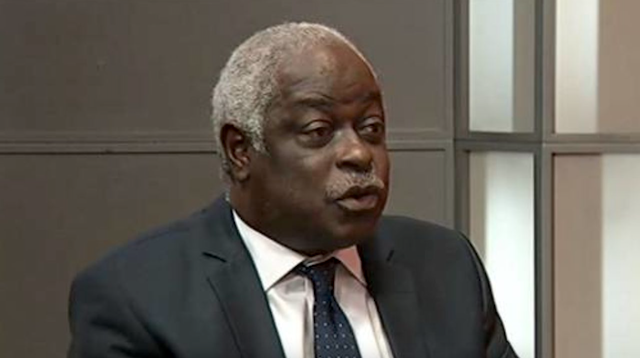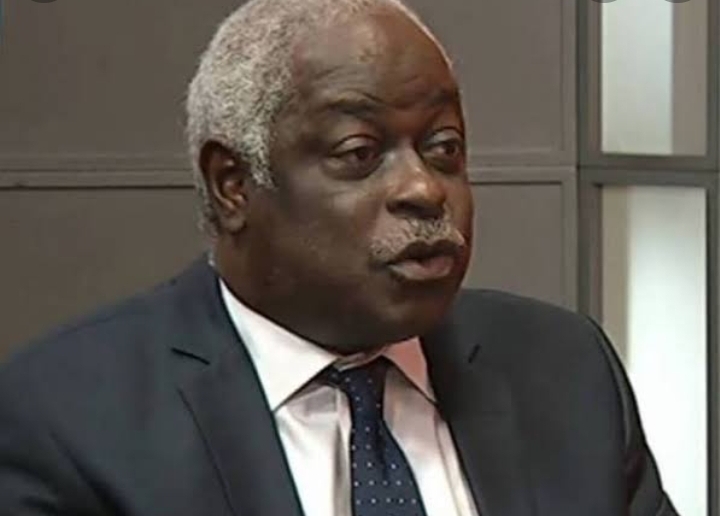“How badly do we want eternal life?”
Jesus is walking down the road, and there is this strange man in flowing white agbada running after Him. The man is running like a mad man. He is running and shouting. What could possibly be the matter?
But wait a minute. The man running after Jesus is no ordinary man. He is actually the Governor of the Central Bank. He is the one reported by Forbes Magazine to be the one of the richest men in Nigeria. What then is the meaning of this? How can a man of that stature be running madly down the road?
Rich men don’t run
Have you ever seen a rich man running before? God forbid! Rich men don’t run. They stroll. Rich men don’t run after anybody. Men run after them. If a rich man wants to talk to someone, he simply sends his servant to get him. But this particular situation is different and peculiar. One of the richest Nigerians is running madly after Jesus in the street.
When he finally gets to Jesus, what does he do? That is the most incredible part. When he gets to Him, he falls down on his knees and pleads with Him.
You don’t mean it!
The Governor gets on his knees on the road in front of everybody?
Yes, he does.
What does he want?
Obviously, he wants something only Jesus can give.
The rich young ruler in the bible is a representative Christian. He is a wonderful child of God. His heart is in the right place. He is not slothful in business. He is fervent in the spirit; serving the Lord.
But there is a need in his life, and it is urgent. There is a need in his life, and it is great. It is a pressing need. So pressing, he forgets he is a big man. So pressing, he forgets he is a rich man. So pressing, he forgets he is wearing a white lace agbada and the street he is kneeling in is muddy and dirty.
Seeking Jesus
I know you have run after a bus before. It was the first bus in a long while, and you just had to catch it. I know you may have run after a woman or man before. You were smitten, head over heels in love. But have you ever had to run after Jesus? Have you run after Him and the quicker you ran; the faster He walked? Have you ever run after the Lord until you were completely out of breath?
Have you ever run after the Lord, until you made a complete fool of yourself? Have you ever run after the Lord, until you lost your dignity, your pride, and self-respect? Have you ever run after the Lord until you became completely broken? Have you ever run after the Lord, naked and not ashamed?
My prayer is that you would find it in your heart to do this, so that you might inherit the kingdom of God.
Orthodox Christians cannot stand people who run after Jesus. They are uncomfortable with them. They believe they are overdoing things. Never mind that Bartimaeus is blind. “Is that why he should be crying after Jesus like that? Is he the only one with a problem? Of course, we all have problems.” “Sister Fernandez, take it easy now. Lord Jesus, please send her away; she is making a nuisance of herself.”
Just think of that woman who comes to Jesus kneeling down and kissing His feet. She is washing His feet with her tears and wiping His feet with her hair for heaven’s sake. Don’t you think that is a little much? Could you really do that?
“My Lord, King David, do you think it is dignifying for the king of Israel to be dancing like that? Your Excellency, you made such a fool of yourself before every Tom, Dick, and Harry.”
“Sister Bisi, how idiotic you were in church today, crying and rolling on the ground. Don’t you have any self-respect? Were you not concerned about indecent exposure?”
If you are one of those who justifies yourself before men, then the move of the Holy Spirit is not for you. God only honours those who honour Him, and He honours them with Himself.
Seeking the kingdom
The rich young ruler, the Governor of the Central Bank if you will, runs after Jesus like a mad man. When he finally catches up with Him, he goes down on his knees in the muddy street. What does this man want? Clearly, he wants something money cannot buy.
The man does not ask Jesus for bread. He does not ask him for fish. He does not ask for long life. He does not ask for even greater riches. He does not ask for the life of his enemies. He is not looking for a wife, a job, accommodation, or promotion. He is not looking for signs and wonders. He has one urgent desire; he wants to inherit eternal life.
How badly do we want eternal life? Do we want it badly enough? Then we need to open our mouths and tell the Lord. The kingdom of God suffers violence and the violent take it by force. We must let Him know that, should He return today, He must not leave us behind. We are going with Him on the first flight. Father; the one thing we desire from You is to spend eternity with You.
Please do not let us miss this common salvation. Please do not let us despise this unspeakable gift of God. Let Your mercy rejoice against Your judgment in our case. Please Lord; let us not fail to inherit You. Help us to labour to enter into Your rest.
Let he who thinks he stands take heed lest he falls.
Presumptuous Christians
Our representative Christian, the rich young ruler, wants to know what he needs to do to inherit eternal life. But the road to hell is paved with good intentions. Jesus tells him: “You know the commandments; how about trying to obey them?” Have you tried fulfilling those requirements and succeeded? Haven’t you, O great Christian, already discovered that you could not do what God requires? Why are you here asking for more things to do? Have you done those ones you already know about?
The man is a Christian; so he should not have been so ignorant of the ways of the Lord. He should have come to Christ in defeat. He should have come saying:
“Lord Jesus; I have tried my very best, but alas, have come short of the glory of God. I have done all I can, but to no avail. I have tried not to get angry but have lost my temper. I have tried not to be covetous but could not help but wish I were the one who got a new car and not my brother. I have tried to remain pure in heart but could not help but look at a woman lustfully.”
“I need You to help me. I need You to deliver me. Lord Jesus, what can You do for me? How can You deliver me from this bondage to sin?”

